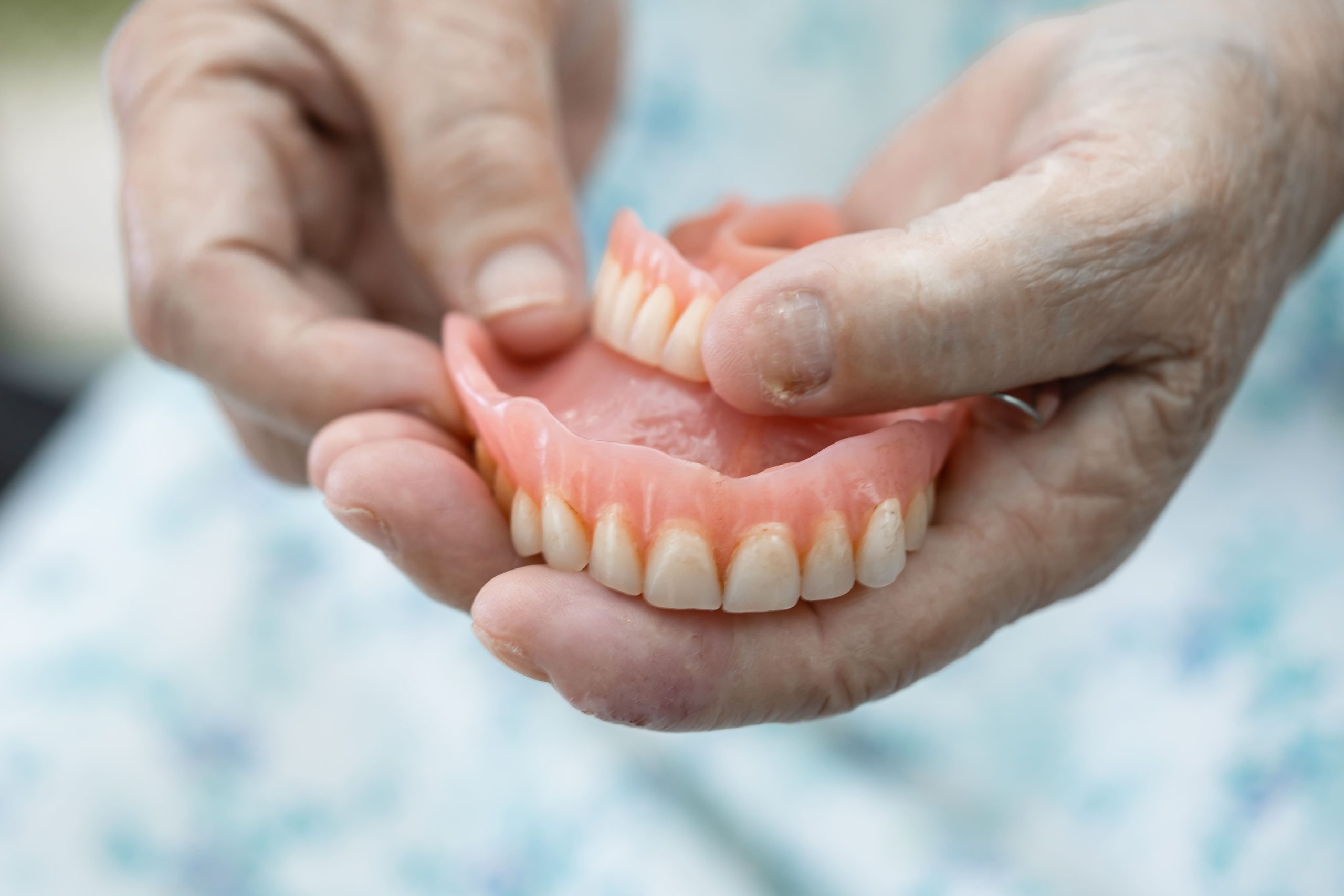
False teeth are not all-or-nothing. While many envision dentures in their full, traditional form, there actually are alternatives that accommodate those who’ve only lost some — and not all — of their teeth. These are called partial dentures, and they’re tailored to fit unique mouth shapes and dental gaps.
If you’ve decided that partial dentures are the right solution for you, it’s time to do your research. In this blog post, you will find out how to compare different materials, costs, and options for partial dentures, and what to expect from the fitting process.
What Are Partial Dentures?
Before we dive into the differences between — and similarities of — each denture, let’s establish a clear picture of a partial denture. As alluded to earlier, partial dentures are dental appliances containing prosthetic teeth, but not enough to complete an entire row. Like full dentures, partial dentures are customised to the mouth, but they take the customisation process a step further by omitting teeth from the prosthesis. They are a great solution for patients who have too many teeth missing to justify dental implants — which are $1,500 a pop — and too many teeth remaining to undergo All-On-4 treatment. Of course, each case is different, and all patients are free to review their options with a professional, there’s also no denying that dentures are the least invasive and most cost-effective option.
Partial dentures consist of two parts: a gum-coloured base to wear over — and blend into — the gum, and the prosthetic teeth themselves. Here are the reasons why patients may opt for partial dentures:
Aesthetics
Missing teeth never flatters the face. Partial dentures will fill in the blanks of a gap-toothed grin.
Functionality
Of course, missing teeth also compromise chewing ability. With partial dentures, patients can enjoy eating as they did before their tooth loss: without complication.
Orthodontic Correction
Teeth sometimes rely on other teeth for support. So, when you lose a supporting tooth, this may set the remaining tooth adrift, compromising your occlusion (bite). However, when you fill the gaps with prosthetics, the natural teeth will receive the stability they need, remaining in place. In other words, partial dentures resolve this orthodontic issue.
Full Denture Support
Some patients may wear a full denture along one arch but have some natural teeth remaining on the other. In cases such as these, your dental prosthetist may recommend wearing a partial denture to support the full one. Of course, each partial denture will have pros and cons depending on what you need from it. Your dental prosthetist will walk you through your options and make recommendations accordingly.
Selecting a Material
Once you’ve decided that partial dentures are the option you want to go with, you’ll need to choose between different characteristics. Materials is a great place to start.
Acrylic
Perhaps the most cost-effective material, acrylic is best for patients who’ve lost a significant amount of teeth or those who may require teeth extraction down the line. This is because acrylic dentures are the easiest to modify, repair and reline.
Thermoplastic Nylon
With a thermoplastic nylon base, the prosthetic teeth on your denture will slot into the teeth sockets, negating the need for metal retainers. For a similar experience, you can also try a resin retainer, which comes either transparent or tooth-coloured.
Vitallium
Vitallium, a type of cast metal, is safe for oral use. Dentures of this material are the thinnest, smallest and strongest of the lot. If you want the best available support for your remaining teeth, vitallium dentures might be right for you.
Knowing the Costs
As is the case with all dental work or appliances, there’s never a set price. Costs will vary from case to case, especially with partial dentures, as different amounts of false teeth will influence the final cost. That said, once you’ve decided on your material of choice and considered the average amount of false teeth used per partial denture, you can usually establish a ballpark figure, which is as follows:
Partial Denture Costs in Western Australia
The cost of a partial denture will vary depending on the material. In Western Australia, the average cost of a partial acrylic denture falls between $1,100 and $2,800. This is perhaps the cheapest option, as you’ll pay more than double for a nylon partial denture, which averages $4,000 to $8,000. The partial denture with the smallest range in cost, however, is the vitallium variant, which can cost from $1,600 to $2,000.
What To Expect From the Fitting Process
The road to partial dentures has multiple steps. Let’s review what you can expect throughout the fitting process.
Step 1: The Consultation
Before opting for any dental treatment, you almost always begin with a consultation: that initial appointment where you review your options, decide which (if any) you would like, and schedule your next appointment(s) to put the wheels in motion.
Step 2: Making an Impression
For the appliance to fit in your mouth, we need to take an impression of your mouth’s interior, which we’ll use to create a wax mould of your partial dentures. Think of this as the (wax) dummy pair that you need to ‘try on’ to confirm sizing. If the prototype sits and fits well, we’ll model your actual partial dentures off it.
Step 3: Fitting the Real Deal
Once we have your partial dentures ready, we’ll call you in for another fitting. During this appointment, you can confirm if they feel comfortable and secure in your mouth. If not, we’ll commit to making adjustments accordingly.
Step 4: Navigating the Teething Issues
Over the first few weeks, you may experience discomfort or notice that your dentures feel looser than they did at the fitting. If this happens, organise another appointment with us, and we can set you back on course.
Making the Full Commitment to Partial Dentures
Now you know what partial dentures are made of and roughly how much they’ll set you back, it’s time to review your options with one of our dental prosthetists. Yours aren’t the first partial teeth Perth has seen, and they won’t be the last. To initiate your fitting process, book your first consultation with Direct Denture Care. You can call us on (08) 9440 1540, or drop an enquiry with us online via our Contact Us page.
However partial your prosthesis, a prosthesis from Direct Denture Care will help you have your full smile again.











